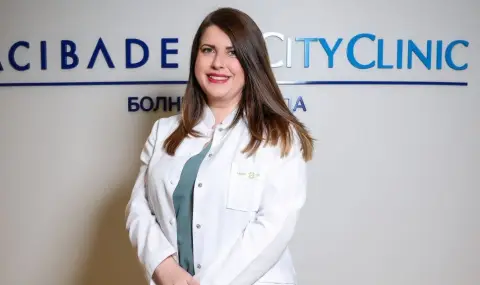27 Bulgarian and 6 foreign speakers presented the latest developments in oncology to 150 delegates at the first Scientific Conference dedicated to the modern treatment of breast cancer, which took place in Bulgaria earlier this month. The event was licensed by the European Society of Medical Oncology and organized by the Breast Cancer Research Institute. Leading oncologists commented to the media about “Challenges and achievements in the treatment and prevention of breast carcinoma”. Dr. Elise Tazimova spoke to FACTS on the subject.
- Dr. Tazimova, why is breast cancer the most common malignant tumor in women…
- Worldwide, breast carcinoma holds the first place in terms of morbidity among the female sex and the second place in both sexes. Nearly 2,300,000 are the newly diagnosed cases on an annual basis. The reason for this constellation is multifactorial – female sex hormones play an important role in the development of the disease and, accordingly, prolonged exposure increases the risk of developing breast carcinoma. This, in turn, means that the risk of developing this oncological disease increases with age. This also answers the question of why its frequency increases after the age of 50. In addition, genetic factors are also decisive - such as BRCA gene mutations and not only, which significantly increase the risk and are the cause of hereditary forms of breast cancer. Lifestyle factors such as obesity, low physical activity, alcohol use and smoking also play a role in morbidity and are important to address.
- In Bulgaria, about 4,000 women face this diagnosis every year. The incidence increases after the age of 35 and peaks between the ages of 60-64. Why?
- It is the combination of long exposure to female sex hormones that determines this dynamic, which is observed in the frequency of morbidity in breast cancer patients in different age groups.
- What percentage is the hereditary encumbrance…
- Hereditary burden and corresponding forms of breast cancer are observed in about 10% of newly diagnosed patients. In addition to the presence of relatives with breast cancer, it is characteristic of them, as well as data on ovarian, prostate, and pancreatic cancer. Also characteristic of hereditary forms of breast carcinoma is onset at an earlier age, involvement of both breasts, and/or occurrence of ovarian carcinoma as well. We currently have an effective targeted therapy in these patients, but we also have a different approach and view of the disease. We also have recommendations for specific follow-up in the case of an already established disease or in the case of knowledge only of the carrier of such mutated genes, increasing the risk of developing an oncological disease.
- What is the level of prevention in our country?
- Unfortunately, on low. Both prevention and screening for breast cancer should be a priority at the state level, but this is not the case.
- How important is it to determine the hormone receptor status of cancer?
- This is a major point in determining the overall strategy for patients with breast cancer. The receptor status gives us information about the characteristics of the disease, but also determines the overall strategy, sequence of therapeutic approaches and used medicinal options, prognosis of the patient.
- There is more and more talk about a vaccine. Tell more… What is it, how does it work, at what level are the tests and what effect does it have?
- The development of a vaccine for breast carcinoma is an area of active research, but there is currently no approved vaccine. Prophylactic and therapeutic vaccine studies are in progress at various stages of development. Vaccines aim to stimulate the immune system to recognize and attack cancer cells. Prophylactic vaccines aim to prevent the development of cancer in healthy people at high risk, while therapeutic vaccines aim to cure. There are various models developed, some in very early phases of study, others with initial results already reported. But despite the active search and the reported promising results, we cannot yet say that they are part of the available arsenal in the fight against breast carcinoma.
- A diagnosis is a life-changing event. How do you communicate it…
- Communicating this diagnosis is a very key point. It is important that the patient is fully informed about the presence of the disease, about the stage, about the upcoming complex therapeutic behavior, the different stages through which it is expected to pass, as well as correctly defining the goals of the entire process. The right attitude and preparation of the patient and active participation are important to achieve the set goals. Proper communication between doctor and patient, as well as a relationship between them, is important.
- What is the most important thing for cancer patients to know?
- Breast cancer is a diagnosis, not a sentence!
------------------------------------------------< br /> Dr. Eliz Tazimova works at Achibadem City Clinic UMBAL Tokuda. She is a member of the European Society for Medical Oncology (ESMO), the American Society for Clinical Oncology (ASCO), the Bulgarian Scientific Society of Immuno-Oncology. Dr. Tazimova has publications in scientific publications on the treatment of breast cancer, lung carcinoma, uro-genital tumors and adrenocortical carcinoma. Participates in a number of national and international conferences and training programs. Dr. Tazimova is the vice-chairman of the Oncological Commission for breast cancer at Acibadem City Clinic UMBAL Tokuda.
